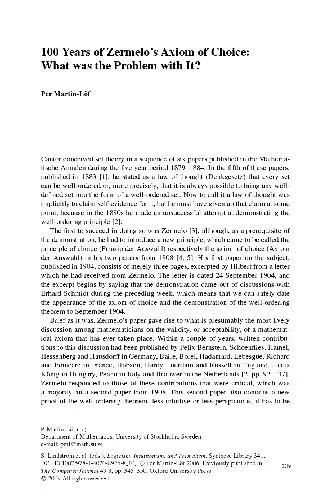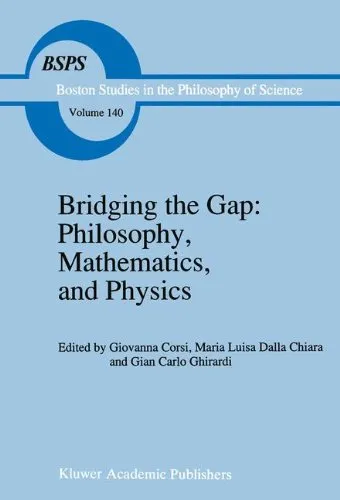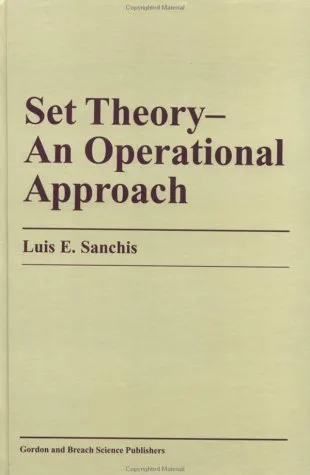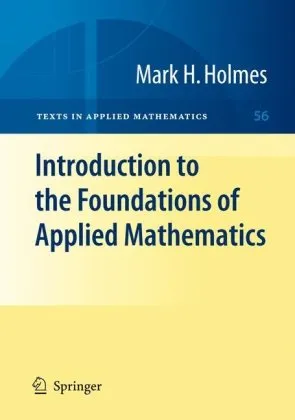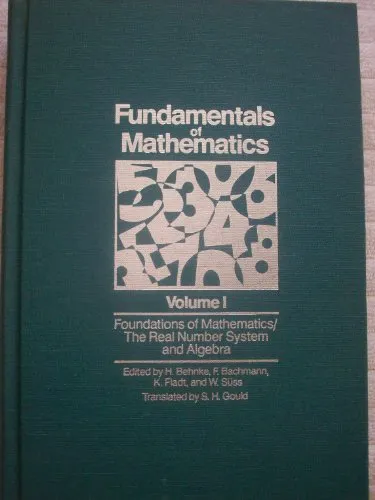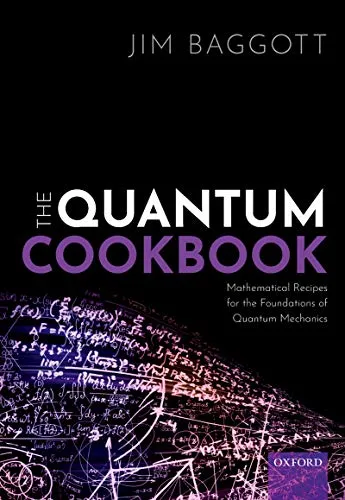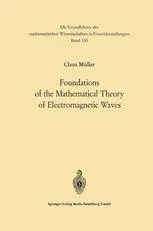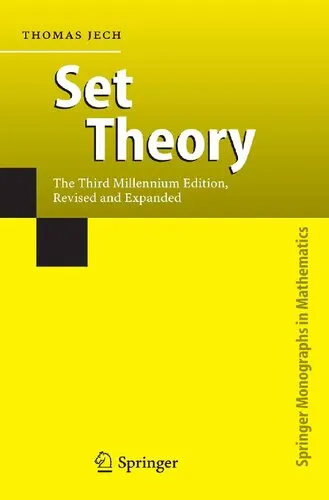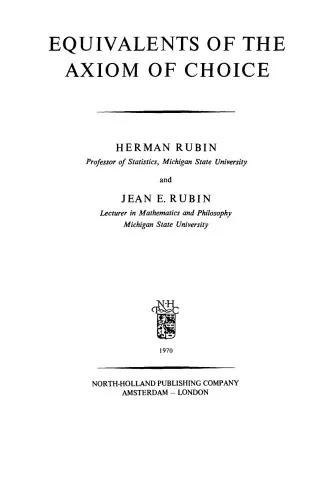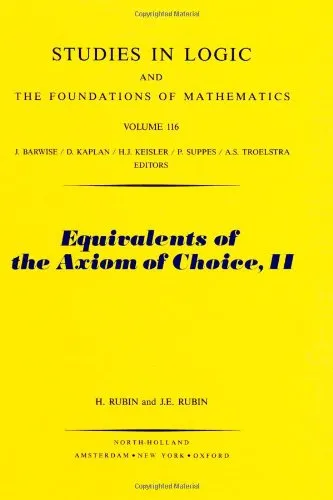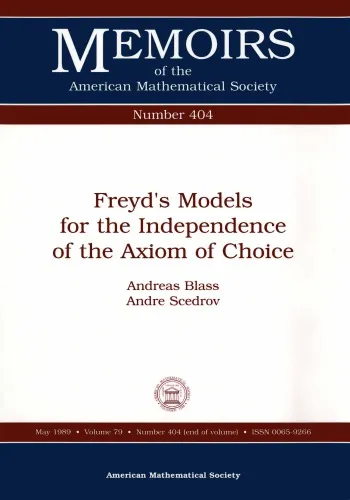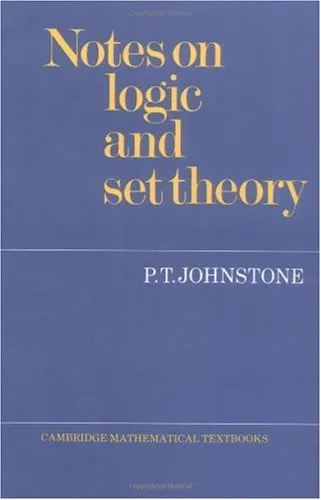100 Years of Zermelos Axiom of Choice What was the Problem with It
4.5
Reviews from our users

You Can Ask your questions from this book's AI after Login
Each download or ask from book AI costs 2 points. To earn more free points, please visit the Points Guide Page and complete some valuable actions.کتاب های مرتبط:
Introduction to "100 Years of Zermelo's Axiom of Choice: What Was the Problem with It"
The Axiom of Choice stands as one of the most controversial and pivotal principles in the foundation of modern mathematics. Proposed by Ernst Zermelo in 1904, this seemingly simple assertion has generated over a century of debate, influencing everything from the philosophy of mathematics to the study of set theory and algebra. "100 Years of Zermelo's Axiom of Choice: What Was the Problem with It" takes readers on a profound journey into the heart of this mathematical axiom, exploring its origins, controversies, implications, and enduring significance in contemporary thought.
This book is not just a historical or philosophical exploration—it is an invitation to revisit the core of logical reasoning and mathematical rigor. Over the last hundred years, the Axiom of Choice has been labeled both indispensable and problematic, foundational and paradoxical. Why has it sparked such polarized responses? What exactly is the nature of the "problem" with it? This book provides an in-depth, accessible explanation of its role in mathematics, examining the different interpretations, proofs, and paradoxes associated with it.
Written for mathematicians, philosophers, and intellectually curious readers alike, this book bridges the technical complexities of logic with historical and philosophical insights. It evaluates not only the technical critiques of the Axiom of Choice but also the underlying philosophical assumptions that have fueled its contentious position in mathematics.
Summary of the Book
The book unfolds in three main sections, each crafted to deepen the reader’s understanding of the Axiom of Choice's place in mathematics and its surrounding debates.
In the first section, we delve into the origins of the Axiom of Choice, tracing its formulation by Ernst Zermelo in the early 20th century. This section discusses the formal definition of the axiom, illustrating its application in set theory and its critical importance to the proofs of mathematical results. Additionally, the connection between Zermelo's axiom and Hilbert's program of formalizing mathematics is explored.
The second section takes a comprehensive look at the controversies and counterintuitive results stemming from the Axiom of Choice. From the Banach–Tarski Paradox to the philosophical unease about its "non-constructive" nature, this part explores the axiom’s dual legacy as indispensable yet paradoxical. It also contrasts constructivist and formalist perspectives, shedding light on why some mathematicians have resisted its universal acceptance.
In the final section, the book reflects on contemporary implications of the Axiom of Choice in the context of advanced mathematical theories and philosophy. It evaluates how modern logicians incorporate or reject the axiom in areas such as model theory, topology, and computer science. The conclusion ties together these threads, offering a thought-provoking meditation on the compatibility of mathematical rigor and philosophical foundations.
Key Takeaways
- The Axiom of Choice is both a powerful tool and a source of paradoxes in mathematics.
- It has far-reaching implications beyond set theory, influencing fields like algebra, topology, and logic.
- Criticisms of the axiom highlight the philosophical tensions between constructivist and formalist approaches in mathematics.
- Understanding the historical and philosophical debates surrounding the axiom enriches our broader view of mathematical reasoning.
Famous Quotes from the Book
"The Axiom of Choice is not merely a mathematical proposition; it is a mirror held up to the nature of mathematical truth itself."
"In embracing the Axiom of Choice, we open the door to powerful proofs and perplexing paradoxes—mathematics is never untouched by the choices of its foundations."
"To understand the Axiom of Choice is to understand the dual edge of mathematical creativity: rigor and abstraction intertwined with intuition and uncertainty."
Why This Book Matters
"100 Years of Zermelo's Axiom of Choice: What Was the Problem with It" is much more than a historical chronicle. It is a vital exploration of the ideas and assumptions that form the bedrock of mathematics.
As mathematics continues to evolve and grow more complex, understanding the foundational principles it rests upon is crucial for both professional mathematicians and students of philosophy. The Axiom of Choice embodies the tensions between intuition, abstraction, and logical rigor—themes that remain integral to the discourse on mathematical truth. This book provides a rare opportunity to bridge the technical and the humanistic, enabling readers to appreciate one of mathematics' most enduring debates from multiple angles.
For anyone interested in the philosophy of mathematics, the history of logical thought, or the sheer intellectual challenge presented by foundational disputes, this book provides a substantial, engaging, and thought-provoking guide.
Free Direct Download
You Can Download this book after Login
Accessing books through legal platforms and public libraries not only supports the rights of authors and publishers but also contributes to the sustainability of reading culture. Before downloading, please take a moment to consider these options.
Find this book on other platforms:
WorldCat helps you find books in libraries worldwide.
See ratings, reviews, and discussions on Goodreads.
Find and buy rare or used books on AbeBooks.
1266
بازدید4.5
امتیاز0
نظر98%
رضایتReviews:
4.5
Based on 0 users review
Questions & Answers
Ask questions about this book or help others by answering
No questions yet. Be the first to ask!
